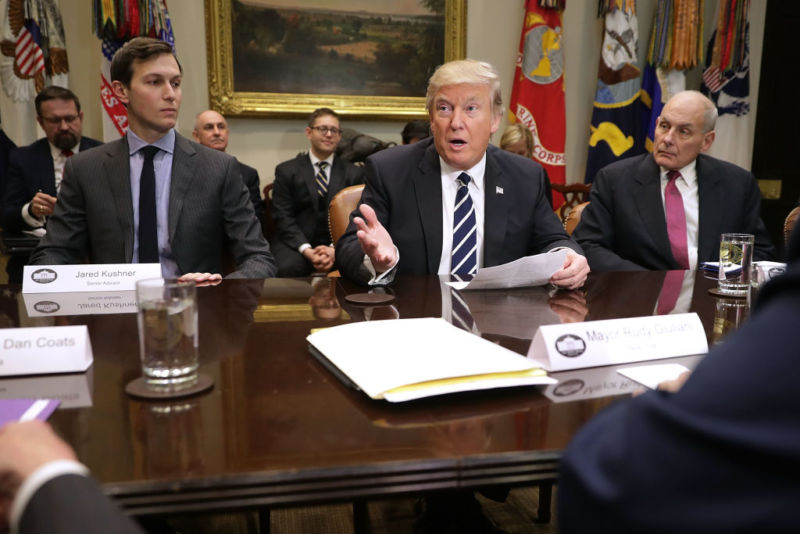
Enlarge / U.S. President Donald Trump met with a group of government cyber security at the White House January 31, 2017 in Washington, DC, and said the government must do more to protect against cyber attacks. But he doesn’t seem to be taking that advice himself, some members of Congress fear.
Representative Ted Lieu, a congressman from Los Angeles County, California, led fourteen other House Democrats on Friday in urging the House Government Oversight Committee to investigate “troubling reports” of President Donald Trump’s apparently poor security practices and the potential danger to national security posed by them—including his continued use of an unsecured Android device to post to Twitter, discussion of sensitive information (including nuclear strategy) in the restaurant at his Mar-A-Lago resort, and leaving classified material unlocked while visitors were in the Oval Office.
In a letter to Oversight Committee chairman Jason Chaffetz and ranking Democratic member Elijah Cummings, the fifteen representatives wrote:
Referring to the complex problem of cybersecurity, President Trump recently said in an interview, “I’m not sure you have the kind of security that you need.” We fully agree—which is why we are writing to request that the House Oversight and Government Reform Committedly hold a hearing into troubling reports that the President is jeopardizing national security by egregiously failing to implement commonsense security measures across the board, from using an insecure, consumer-grade Android smartphone to discussing nuclear strategy openly in a dining room at his Mar-a-Lago Club in Florida. Cybersecurity experts universally agree that an ordinary Android smartphone, which the President is reportedly using despite repeated warnings from the Secret Service, can be easily hacked.
Lieu and the other signatories of the letter expressed concern that Trump’s Android device, “most likely the Samsung Galaxy S3,” is particularly vulnerable to attack, and that someone could alter the information the President viewed on it—which could “have a huge impact on his beliefs and actions.” They also feared that someone could gain control of his Twitter account, “causing disastrous consequences for global stability,” or use it as a listening device to pick up sensitive conversations.